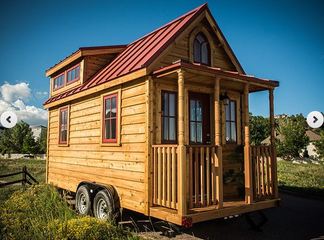Of course, there are those that live this lifestyle because of their particular circumstances and desires. However, luxury living is but a dream for others. Most people are just trying to find a job, keep a job, or find a job that can provide enough to make ends meet. It's a natural desire to live comfortably and to be able to have things that you really want. Luxury homes look great but are out of reach for many.
Most of us know about the housing crisis of years past, but its residual effects are still being felt. Potential buyers are delaying entry into the housing market for a variety of reasons. With foreclosures in their lending history, people are finding it difficult to get mortgages. Lenders have tightened up their lending policies in general. In addition, debt, job loss, or reduction in earnings have restricted people from taking on additional costs of home ownership. Some are reluctant to buy because they need "mobility" to be able follow jobs to other areas of the country. And for some, owning a home and assuming the responsibilities of home ownership are just not appealing or important to them.
There is a growing interest in a different housing option,that is quite different than traditional home ownership. Enter "Tiny Houses". These tiny homes are compact, often measuring less than 300 sq ft, but some are available in larger size. Minimalist living does not necessarily mean sacrifice. Simpler living and freedom from crushing expenses can actually lead to a fuller, happier life for some. Occupants of these houses tend to be committed to less restrictive, less costly, less cluttered and environmentally friendly living.
Tiny houses are built on trailer platforms although some are permanent structures. Even though they are compact, they offer lots of features found in typical homes. Depending on the size of the tiny home and how it is designed, at the very least you will find the following:
A compact kitchen with counter, smaller refrigerator/freezer, microwave and oven/stovetop.
Great Room
Full bath with a shower.
Sleeping area(s) often located in a loft.
Closet(s) and cabinets
Porch
You can purchase plans to build your own or buy them prefabricated. There are many sites dedicated to Tiny Home living and many manufacturers of plans and structures, both permanent and mobile.
I have some experience with minimalist living for extended periods of time. As a family of 4, we have traveled throughout the country in a 24 ft travel trailer, later upgrading to a 28 ft trailer with a slide out. One trip lasted 4 weeks with a family of 4 in the 24 ft. trailer. We had no problems sharing the smaller space. We had creature comforts: a kitchen with gas stove/oven, microwave, double sink, full bath with shower and bathtub. Queen bed in a separate bedroom, sleeper sofa and dinette. We had a covered outdoor with a retractable awning, air conditioning and furnace. We used our RV in the summer and in cooler weather, but it was not outfitted to be usable in the winter. Living in our trailer was a learning experience, as we had to adjust what we packed and what we felt was important to have. Ultimately, we were quite comfortable, and did not have "space" issues while living in the cozy quarters. However, upgrading to the 28ft trailer with the slide out was more comfortable, as we had a bit more elbow room in the great room area. We had suitable interior and exterior storage space for equipment, clothing and personal items. Designers make creative use of space, and we were creative in how we used that space. With downsizing, you learn to be minimalist, having what you need, but carefully considering what you "really" need. There's a learning curve for those who chronically over pack.
Tiny Home living is a different lifestyle and not for everyone. However, I think Tiny Homes is entirely doable, if you can bring yourself to let go of excess in living, learn to be efficient and find pleasure and joy in other things besides having a large home.
http://www.washingtonpost.com/lifestyle/style/home-squeezed-home-living-in-a-200-square-foot-space/2012/11/27/e1a02858-2f35-11e2-ac4a-33b8b41fb531_story.html
http://www.usatoday.com/story/money/personalfinance/2014/08/30/tiny-homes-living/14052371/
http://thetinylife.com/what-is-the-tiny-house-movement/
http://www.countryliving.com/homes/real-estate/tiny-house#slide-1
http://affordablehousingdesigns.com/companies/


 RSS Feed
RSS Feed
